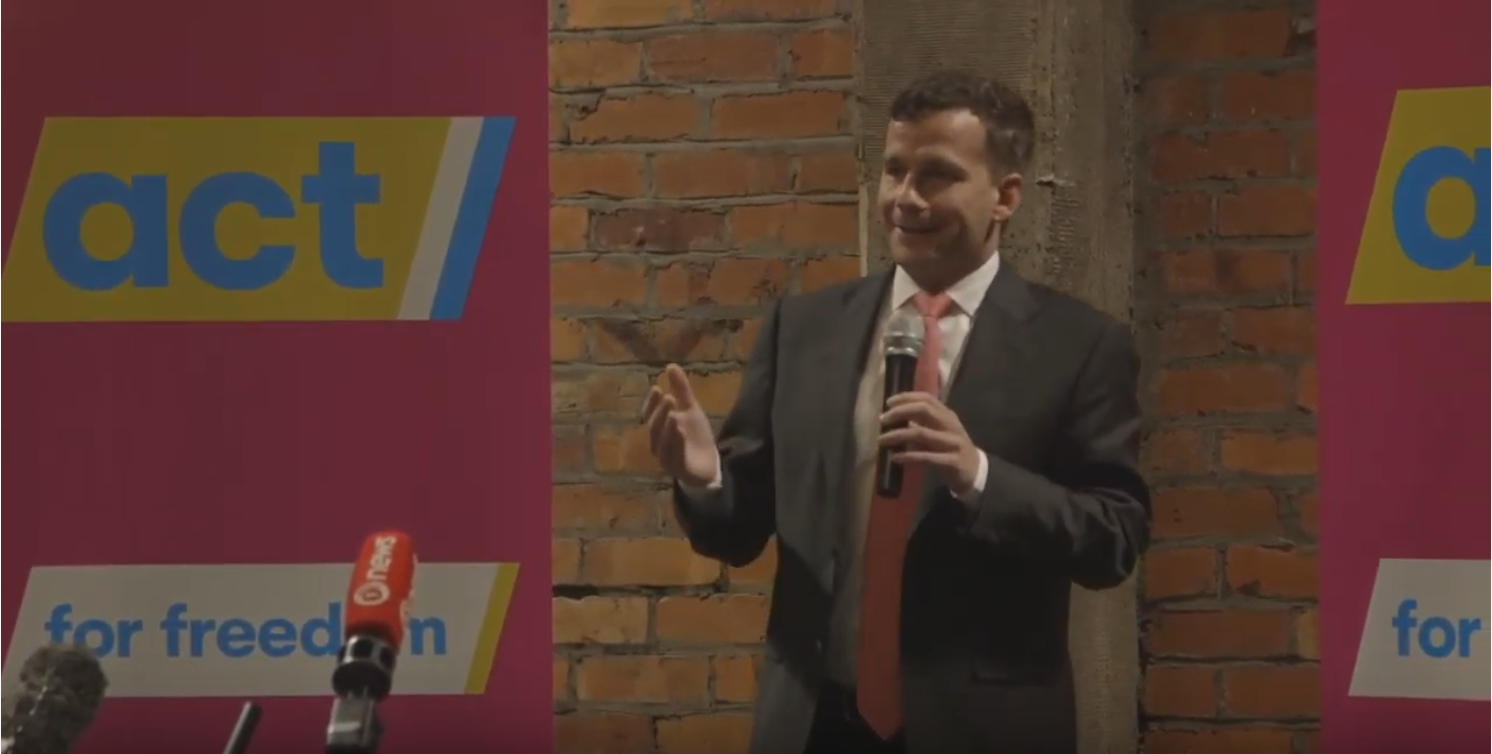The Podcast
Friday’s Politics in Full Sentences podcast featured David Seymour interviewed by employment law specialist Max Whitehead. It covered the welcome free speech sentiments from Auckland and Massey Universities, New Zealand First’s banana republic
Free Speech Gets a Boost
We have been very critical of Universities for their feeble attempts to stand up for Free Speech. Massey’s blocking of Don Brash was hopeless. AUT’s acquiescence to the Chinese Consulate’s request not to commemorate Tiananmen Square was in some ways worse. This week we’ve seen University of Auckland Vice Chancellor Stuart McCutcheon stand up for free speech even when the content was quite vile.
And at Massey
Meanwhile, Massey University refuses to back down on hosting Speak Up for Women, a group of feminists who question whether biological women should be able to refuse trans women access to their spaces. Whatever you think of the matter at hand, at least we are seeing Universities stand up for the idea that speech should not be censored. Both Universities are under attack for their stances and deserve your support.
A Well Watched Video
David Seymour’s speech on the recently introduced Arms Legislation Bill (the so-called ‘second tranche’) has been watched 35 thousand times.
Another popular video is David pinning down Winston Peters as Acting PM trying to defend the real PM’s stance on the gun buyback.
Our Kind of Economic Stimulus
As the economy rises to top of mind, every other party is talking about Keynsian style economic stimulus. The problem is Governments already spend money poorly. Imagine telling them to spend for the sake of it! If the Government wants to put money back into the economy, ACT’s 17.5 per cent flat tax would do it. It would reduce overall taxation by nine billion, giving around five billion dollars back to business.
What Would We Cut
ACT’s full policy is here. We show how the tax rate could be achieved without cutting health, education, public safety or infrastructure spending. We would reduce corporate and middle class welfare in light of the considerable tax cuts for individuals and business. A Government with this tax policy could still balance its budget.
But isn’t it an Increase?
Some point out that the bottom rate would increase from 10.5 to 17.5. The dollar effect is $19 per week extra tax on your first $14,000. It would help if the previous Government hadn’t hollowed out the tax base by dropping from 19.5 to the current rate, but it’s too late for that now. Most earners who would face an increase are in households where other members would get a cut from dropping the higher rates. Of those remaining, the $5 billion in company tax cuts would likely increase their take home pay in spite of the income tax increase.
An Aspirational Policy
Right now, if you do all the right things, study, work, save and invest, you go from a bottom tax rate of 10.5 to a top rate of 33 cents. Meanwhile our company rate is among the highest in the developed world. ACT’s flat tax would send the opposite message. Productivity comes from upskilling, work, saving and investment, and we need more of it. We will no longer send a message by punishing it through the tax code.
A Fair Policy
We should mention the massive simplification of tax compliance and administration. There would no longer be any point in shifting tax liabilities between companies and individuals, or between tax years. However think about how it changes politics. Right now five per cent pay a third of all income tax. Nearly half pay no net tax. In a world where every voter pays the same rate, it would be much harder to buy votes with lower quality spending.
National’s Rather Odd Policy
An apparently leaked policy from the Nats had them wanting to fine parents $3000 if their kids were not in school or work by a certain age. We understand the sentiment, but its most likely result is to create a new category of unpaid fine. If the fine were paid, what next? If you have an answer to that question you might not have needed the fine.
A Truly Silly Government Policy
The Government has announced that refugees from Africa and the Middle East needn’t have pre-existing connections in New Zealand. They say it’s necessary because there haven’t been enough refugees from this area. They seem to believe it’s more important that the share of refugees from each region is statistically representative than refugees settle well. It’s the ultimate in marketing-led policy.
The Canadian Evidence
Canada’s scheme of allowing community groups to bring refugees who they sponsor and take responsibility for provides the best evidence that refugee programs work better if those arriving have a connection and networks. Canada’s scheme has shown refugees sponsored this way (which is ACT’s policy), settle in better. The New Zealand Government is going in the opposite direction.
The Electricity Price Review
The Government is tinkering with the rules retailers can use for attracting and retaining customers. It’s not the worst thing they could be doing, but it misses the wider point. Before electricity can be sold it must be generated. The real problem is the great difficulty in building generation, which is coming under increasing regulatory pressure from the Zero Carbon Bill and the usual RMA dogma. If New Zealand industry wants to be competitive, we need cheaper generation.

